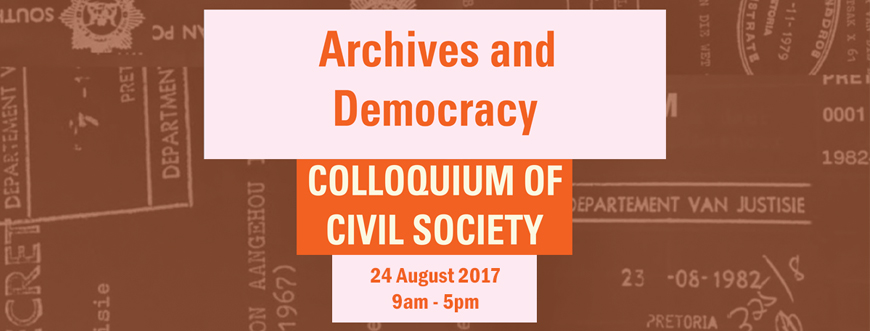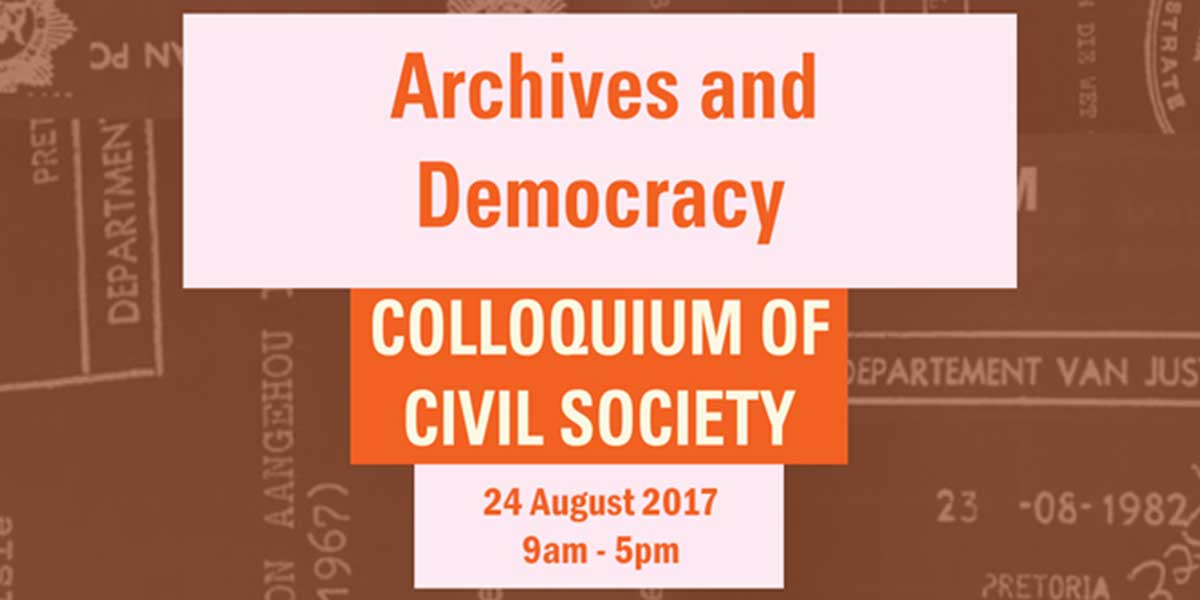
PARI was well-represented at the Archives and Democracy: Colloquium of Civil Society on 24 August, 2017. The day-long programme featured five panels discussing the apartheid era archives, the importance of access, politics of the archive, international comparatives and how the law aids or hinders the liberation of the archives.
Ferial Haffajee illuminated the value of the archive from an investigative journalist’s perspective. She shared her speaking notes with us:
I was part of the first black democratic wave dispatched to the SABC. The archive was a source of endless fascination – well-kept and ordered. There was documentation of the Sophiatown removals – how the broadcaster had created the narrative that made Group Areas Act palatable to white South Africa.
The screams, the trucks, the police, preserved in the resin of documentary memory – I saw the value of an archive.
***
One day Verne Harris walked us through the Mandela archive as we prepared the obituary edition. It was a gold mine to understanding not only the life of this icon, revolutionary and statesman but a way of evoking history in a popular fashion and also debunking the myth making that had set in place as he led the negotiated settlement.
****
The archive is essential to rich and effective journalism. Fast forward. Whistle-blowers tell you things all the time. And it is essential to go to the contemporary archive to get the information to back up their stories.
Nkandla – decision-making at the department of Public Works. It requires an excavation and access to the archive of record of how it spends public money and how the decision was made to splurge R256-million on a single person’s private home.
It’s a hellish task. PAIA’s are expensive and time-consuming to apply for. Obstructions are regular. Opacity is the culture of the democratic state although the architecture of our laws is meant to have engendered a different culture – a culture of transparency.
At City Press, we spent tens of thousands trying to gain access to the disciplinary hearings of the officials charged with the spending at Nkandla – the fall guy hearings.
****
The #Guptaleaks emails have shed light on the extent of what we call state capture. Ours is a failed state when redistribution from the development purse is used to bail out the crony collapse.
Thanks to the whistleblower and excellent investigative reporting, we know. But for the historians and sociologists and writers who will capture this epoch, will they be able to tell that story and make those revelations through being able to investigate the record of documents, of decision-making to tell us how we got where we are?
***
For that answer, we turn to Hennie’s work in Apartheid, Guns and Money where he reveals that despite his tome which is making us account again for our history and think about the links between yesterday’s corruption and today’s, that an archive is essential and that access to it is too.


